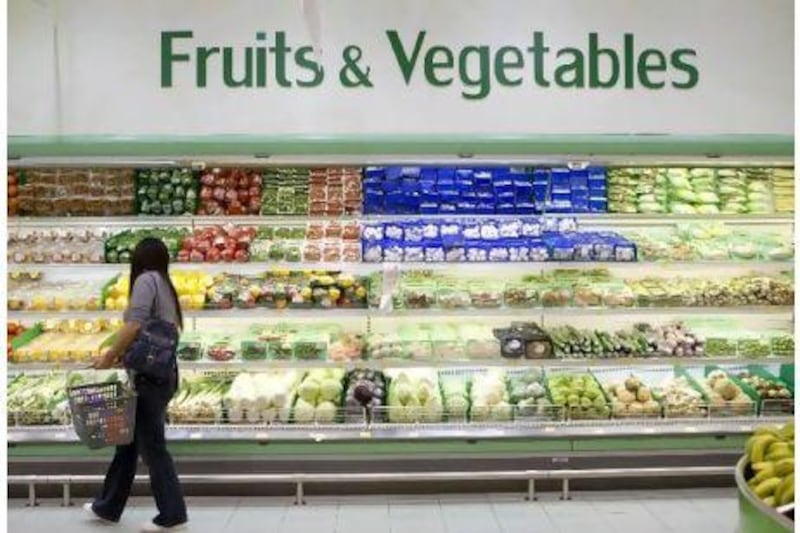Sharp rises in transport, food and housing costs drove Abu Dhabi's annual inflation rate to 3.1 per cent last month, according to official figures released yesterday.
Economists said the overall annual rise in prices had not put a big strain on consumers, although the Statistics Centre Abu Dhabi (Scad) said costs were rising most for lower income and lower-middle-income households.
"The main contributors were the increase in the cost of food and non-alcoholic beverages and transport, followed by increase in cost of housing and utilities," the National Bank of Abu Dhabi said in a report.
Annual inflation rates across the UAE registered moderate increases last year, a reversal of falls in prices seen in the second half of 2009.
Dubai's official statistics agency last week reported an increase in consumer prices of 0.9 per cent in the year to February.
Recent inflation rates are widely viewed as tolerable, in contrast with rates of above 10 per cent that were the norm in 2007 and 2008, before the financial crisis occurred. In Abu Dhabi, however, recent price rises have hit poorer consumers hardest.
"The rise in consumer prices in February by 3.1 per cent compared with February 2010 caused a rise in the consumer prices for households in the 'lower class' welfare level of 4.8 per cent while prices increased for households in the 'upper class' welfare level by 2.4 per cent," Scad said in its monthly inflation report.
That disproportionate rise came as prices jumped for basic goods and services that comprise a large portion of lower-income household spending. Transport prices rose 11.04 per cent in the year to February 28, the statistics show.
Food prices rose 9.92 per cent in the period, and prices for furniture, household equipment and maintenance rose 8.08 per cent.
"The food and non-alcoholic beverages group accounted for 50.4 per cent of the rise in the index, due to increases in the prices of most of the subgroups included in this group," the Scad report said.
"The sugar, jam, honey, chocolate and confectionery subgroup rose by 5.6 per cent, while meat prices grew by 14.4 per cent, vegetables by 20 per cent [and] fish and seafood by 11.8 per cent."
A 3.4 per cent rise in rents in the first two months of this year compared with the same period last year also played a major role in driving inflation.
Despite a relatively small price rise, the housing and utilities category accounted for 35.9 per cent of the rise in consumer prices in the emirate.
The category has a 37.9 per cent weighting in the index, reflecting that more than a third of consumer spending goes towards housing.
While inflation rose by 3.1 per cent on an annual basis, prices inched up just 0.1 per cent last month compared with January, Scad figures show.






